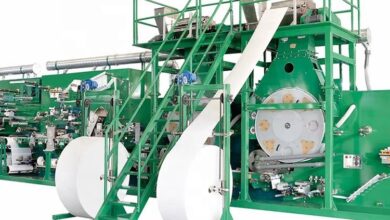Tech in Agriculture: The Rise of Precision Farming
In the heartland of agriculture, technology is ushering in a new era — an era of precision farming. As traditional farming methods meet cutting-edge technology, the landscape of agriculture is transforming, promising increased efficiency, sustainability, and productivity. This article delves into the realm of tech in agriculture, exploring the rise of precision farming and its profound impact on the way we cultivate the land.
1. Introduction
Defining Precision Farming
Precision farming, also known as precision agriculture, involves leveraging technology to optimize various aspects of farming, from planting and irrigation to pest control and harvesting. It aims to enhance efficiency, reduce waste, and maximize yields.
The Need for Technological Integration
Traditional farming methods face challenges such as resource inefficiency, environmental impact, and the need to feed a growing global population. Precision farming addresses these challenges by incorporating advanced technologies into every stage of the agricultural process.
2. Technological Tools in Precision Farming
Drones and Aerial Imagery
Drones equipped with high-resolution cameras provide farmers with a bird’s-eye view of their fields. Aerial imagery helps identify crop health, assess the effectiveness of irrigation, and detect pest infestations.
GPS Technology in Agriculture
Global Positioning System (GPS) technology allows farmers to precisely map and navigate their fields. This ensures accurate planting, optimized use of resources, and efficient harvesting.
IoT and Smart Sensors
The Internet of Things (IoT) plays a pivotal role in precision farming through smart sensors. These sensors monitor soil conditions, crop health, and weather patterns in real-time, providing valuable data for decision-making.
Automated Machinery
From self-driving tractors to robotic harvesters, automation reduces the need for manual labor while increasing the precision and speed of agricultural tasks.
3. Benefits of Precision Farming
Increased Efficiency and Productivity
Precision farming optimizes resource use, leading to increased efficiency in planting, irrigation, and harvesting. This efficiency translates into higher crop yields and, subsequently, increased productivity.
Sustainable Agriculture Practices
By precisely applying fertilizers and pesticides based on real-time data, precision farming minimizes environmental impact. This sustainable approach promotes soil health, reduces chemical usage, and conserves resources.
Cost Savings for Farmers
The precise use of resources and automation result in cost savings for farmers. Reduced inputs, such as water and fertilizers, contribute to improved economic viability for agricultural operations.
4. Challenges and Adoption Hurdles
Initial Investment Costs
The implementation of precision farming technologies requires a significant initial investment. While the long-term benefits are substantial, some farmers may face financial barriers to adopting these technologies.
Technological Literacy
Farmers need to be technologically literate to fully leverage precision farming tools. Education and training programs are crucial to overcoming the learning curve associated with new technologies.
Connectivity in Rural Areas
Reliable internet connectivity is essential for the seamless operation of precision farming technologies. In remote rural areas, inadequate connectivity can be a hurdle to widespread adoption.
5. Case Studies: Success Stories in Precision Farming
Farmers Embracing Precision Techniques
Highlighting real-world examples of farmers successfully implementing precision farming, showcasing increased yields, reduced environmental impact, and improved profitability.
Community Impact
Exploring how precision farming not only benefits individual farmers but also has a positive impact on local communities through job creation and sustainable agricultural practices.
6. Future Trends in Precision Farming
AI and Machine Learning Integration
The future of precision farming involves further integration of artificial intelligence (AI) and machine learning. These technologies will enhance predictive capabilities, allowing farmers to make data-driven decisions with greater accuracy.
Blockchain in Agriculture
Blockchain technology is poised to revolutionize the agricultural supply chain, providing transparency and traceability from farm to table. This ensures the authenticity and quality of agricultural products.
Continued Innovation in Robotics
Advancements in robotics will lead to more sophisticated and versatile robotic systems for tasks such as precision planting, selective harvesting, and even autonomous weed control.
7. Conclusion
As technology becomes an integral part of agriculture, precision farming emerges as a beacon of hope for a more sustainable and productive future. The rise of precision farming represents a paradigm shift in the way we cultivate the land, emphasizing efficiency, environmental responsibility, and the well-being of farming communities.
Frequently Asked Questions (FAQs)
- What is precision farming, and how does it differ from traditional farming?
- Precision farming involves the use of technology to optimize various aspects of farming, enhancing efficiency and sustainability. It differs from traditional farming by incorporating advanced tools such as drones, GPS, and IoT.
- How do drones contribute to precision farming?
- Drones equipped with cameras provide farmers with aerial imagery, helping monitor crop health, assess irrigation effectiveness, and detect pest infestations, contributing to informed decision-making.
- What are the benefits of precision farming for farmers?
- Precision farming offers increased efficiency, sustainable agriculture practices, and cost savings for farmers. It optimizes resource use, leading to higher crop yields and improved economic viability.
- What challenges do farmers face in adopting precision farming technologies?
- Challenges include initial investment costs, the need for technological literacy, and the requirement for reliable internet connectivity, especially in remote rural areas.
- What is the role of AI and machine learning in the future of precision farming?
- The future of precision farming involves greater integration of AI and machine learning, enhancing predictive capabilities for more accurate and data-driven decision-making.



